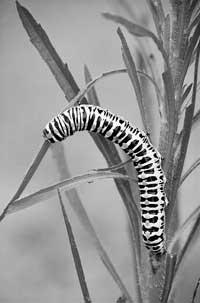The herbivorous principle of uncertainty

Scientists often have to look at their limits or their limitations. Also ecologists as scientists. Those who talk about particle physics should take into account Heisenberg's uncertainty principle and it seems that environmentalists should also take into account some similar principle.
The Nobel laureate physicist Werner Heisenberg became aware of this principle. According to his theory, it is not possible to measure all the properties of a subatomic particle at once, that is, its position, its mass and its velocity. The measurement of one of the properties produces distortion in others.
Researchers at the University of Alberta considered that knowledge of the environment around us is necessarily limited by ecological reasons such as the "herbivorous principle of uncertainty." The research team has observed that insects eat less or more than normal measured wild plants. The concern arose after several mountain sampling, as half of the plants analyzed became ill. And half seemed a little more sick.

Therefore, they worked weekly as samplers on certain plots and then analyzed whether they influenced. The Apocynum cannabium plant of the plot was more food, probably, by insects. However, the straight Potentilla plant was less occupied than in untapped areas.
They do not say because they do not know why the studied plants are more attractive or unpleasant to insects. It may be due to some chemical component or the path made by researchers, but they have seen that there is influence. Therefore, size measurement can influence plant growth in the coming days, or it can alter what the plant eats or what eats who eats. Other researchers at the same university consider that good experimental design can identify some of the consequences of human activity.





